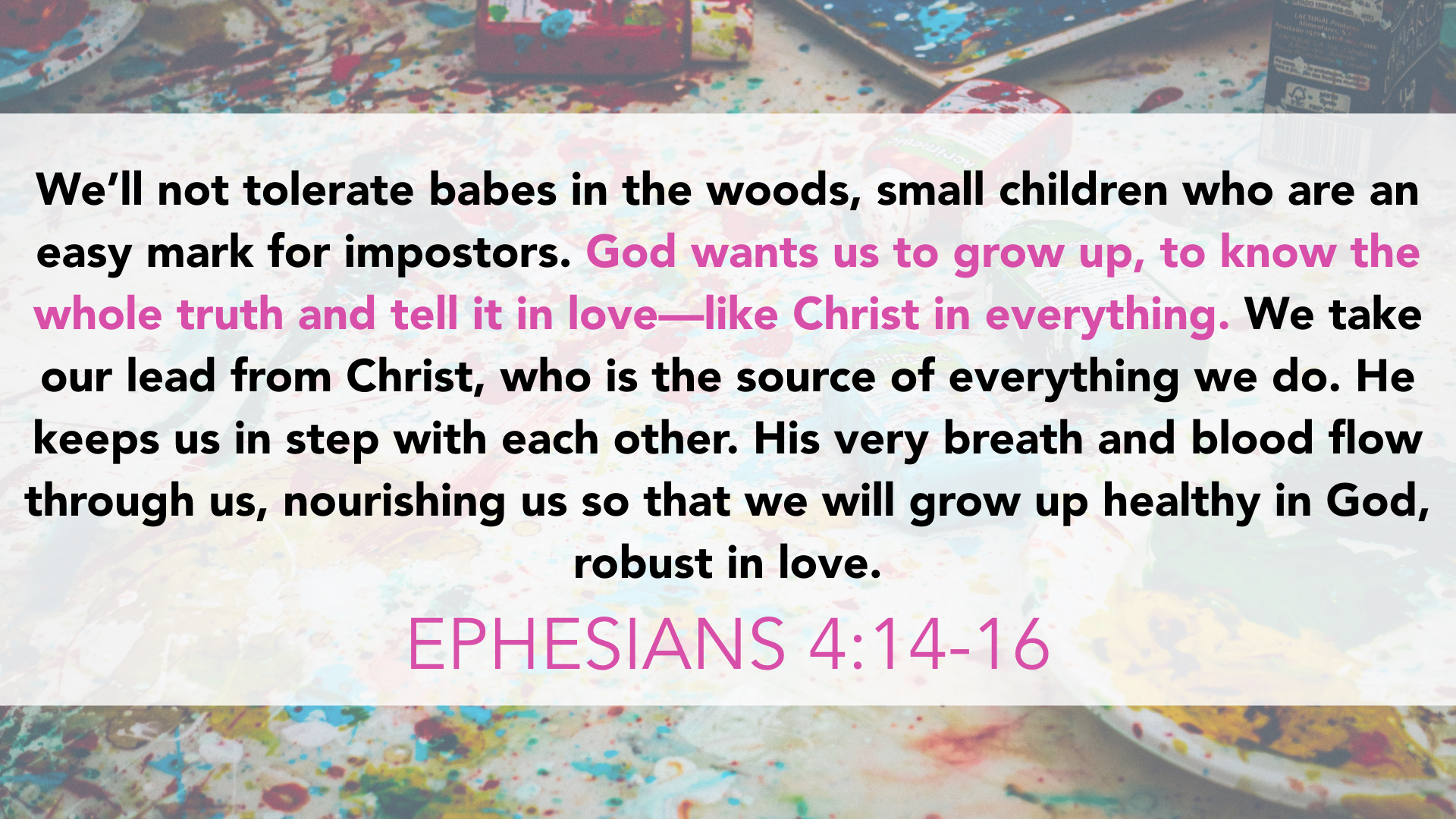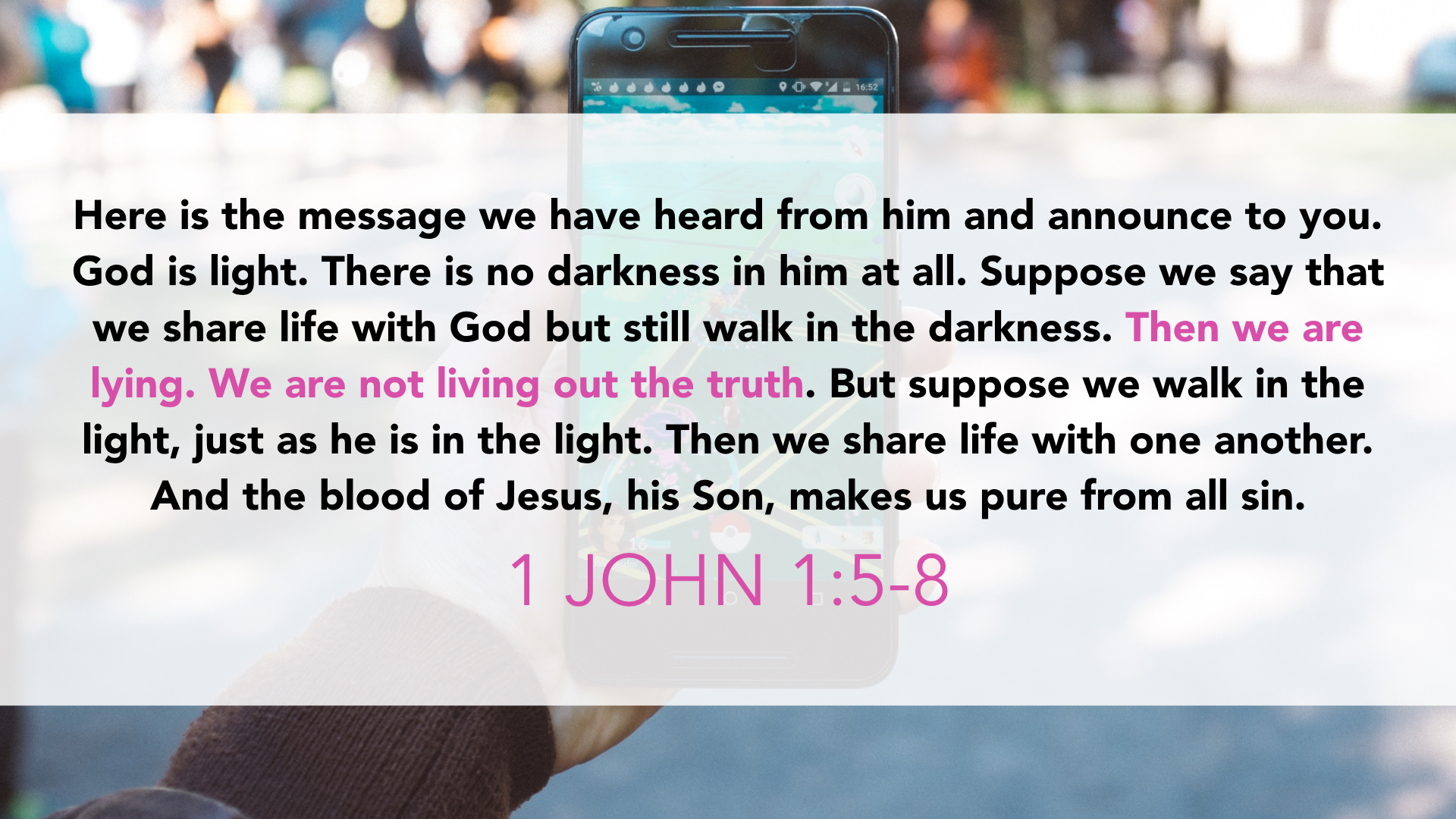Below are the notes that I took during Mike Clear's opening session at #OC16. Redefining The Role Of The Elementary Pastor was an awesome way to kick off the week and gave a great framework for a lot of the themes that many of my other breakout sessions would cover.
THREE QUESTIONS TO ANSWER FIRST
1) What are we doing?
a. This needs to be defined by your mission statement. We show up to help our kids become motivated by the Gospel to live out their faith every day.
1. Know – know who Jesus is and establish an understanding of faith.
2. Love – Jesus loves you and you need to show others the same love. This is where kids understand the character of Jesus and how moral behaviour is a way that Christ works through them to be light in their world.
3. Share – Creating opportunities for kids and families to share their faith whether through word or action.
2) Why are we doing it?
a. What is at stake if we go away? What would change in a kid’s life without the light of the local church?
b. What has God called you (the leader) to in your life? Ministry will take courage and patience.
3) Where do I fit in?
a. What are your core responsibilities?
TWO KEY PRINCIPLES
1) Maximize your strengths and minimize your weakness.
2) Lack of skill does not eliminate responsibility.
Most of your job as an Elementary Pastor will fit itself into two key categories and it is your job as the leader to be able to recognize what area you are currently living in.
1) Production – The environments we create for our kids
2) People – Dealing with individuals who are created in the image of God. No matter how we feel at the present moment everyone deserves the best from you at any given moment.
A) Align your whole team.
a. How are you repeating your core values to volunteers and staff so that they become the walking DNA of your ministry? Everyone should be able to answer the question of why do I show up/why do I do what I do. TPCKidmin – We want our kids to become motivated by the Gospel to live out their faith every day.
1. Know Jesus
2. Love Jesus and others
3. Share Jesus with the world
ii. These core values cannot be talked about enough.
1. Face-to-face coffee conversations
2. Training
3. Played out in how we plan
iii. How are some ways that you can visually reproduce some of these values?
1. Facebook banners
2. Interview notes
3. Murals in kidmin wing
4. Stage design
iv. Do your staff/volunteers understand what the win is for your ministry?
1. Tell them that the win is found when we answer the question why we do what we do.
2. The win is when faith becomes when our kids become motivated by their faith to live it out every day. When their character reveals Christ and Christ works through them to change the world around them.
B) Recruit for growth.
a. Attract the right leader
i. Go after the owners not the renters (Not Normal book)
b. How are you perusing the new and quality leader so they invest in your ministry?
i. Hoping they come to you will not work
ii. Create easy avenues for them to establish involvement
iii. Inspire your current leaders to find the next leader
1. Likes attract Likes – The owners in your ministry will attract others who have similar traits and morals.
iv. Mine for talent
1. What avenues do you have for your current leaders/volunteers to grow?
2. Do you have a structure that inspires leadership development?
3. As leaders develop they can carry the vision forward because they want to stay.
HOW ARE YOU THINKING?
1) Think vertically
a. How do you transition the kids into and out of your ministry?
i. Newborn – Toddler
ii. Toddler – Preschool
iii. Preschool – Elementary
iv. Elementary – Sunday Morning Jr. High
v. Elementary – Friday Night Youth
b. How do you ease the transition for parents?
i. What does your transition Sunday look like?
2) Think Systems (Refine)
a. What foreseeable challenges currently have no systems?
i. What happens when check-in goes down?
ii. Bathroom Policy
iii. Visitors
b. Fix the systems that are not functioning
3) Think Message
a. Elevate TRUTH at all times
i. How do you apply truth to your audience’s reality? Do you KNOW your audience and the reality that they live in?
b. Kids at every age are created uniquely to understand God (It’s Just A Phase)
i. Kids change but God doesn’t – you have to adjust your message
ii. How do you connect kids to God as they transition through the phases?
c. Elementary kids think like scientists but love stories - so how do you teach a story?
i. What is the ONE thing you want a kid to never forget?
ii. What scriptures align with that ONE thing
iii. How will you recycle that ONE thing so they will remember it?
d. Prioritize TRUTH and what is relevant to a child in the current phase they are in.
4) Think Horizontally
a. What is your strategy to recycle core truths?
i. What is your scope and cycle for curriculum?
1. Three year rotation – one year is a chronological journey through the Bible
2. What do you want them to remember?
b. How do you help kids recycle the lessons?
i. Add more voices
1. Storytellers are unique in their delivery and can help kids remember in different ways.
2. Also multiple leaders that say the same thing in different ways on a Sunday will help a kid remember
c. More understanding
i. The goal of teaching is for kids to understand the ONE truth and not the amount of content. Content does not equal knowledge.
ii. The goal is to help a kid master a concept of God
d. Teach more relevant material
i. Help kids understand how to connect their faith with what is happening around them
e. Adults share how they feel and think about your ministry
i. Do not prioritize your content around adult feelings. Prioritize your content around what a child needs to understand God in the phase they are currently in.
5) Think program improvement
a. Ask the question what lessons from last week can be applied to this week.
b. How are we evaluating our ministry so that improvements that can be made are recorded and acted upon?
i. Who are you serving?
ii. What areas of our ministry need evaluating?
1. Transition points
2. Relationships and how they are formed
3. New family experiences
iii. Get a set of fresh eyes that can walk through your ministry if you need them.
iv. Always be on the lookout for an answer to the question – How can it be improved?
1. We work in our ministry daily and quite often we do not have the time to work on it
v. What is working well and needs to be celebrated?
1. New Christians
2. Great relationships
vi. How are you improving the environment?
1. How do we visually reengage our kids?
2. The look of the environments can undermine the relationships that you want to make with kids. They feel undervalued and disengaged.
3. Show care through the visual appeal of your environments
4. Make it welcoming
a. It is always someone’s first week.
5. Know your audience and how they engage with your space
6. Equip your leaders
a. Supplies need to be available and easy to find.
7. Safe – NOTHING ELSE MATTERS IF IT IS NOT SAFE.
6) Think community
a. Evaluate the connections that are being made in small group time.
i. How do you monitor the relational impact of your leaders?
b. Numbers matter
i. Who is coming
ii. Who are new Christians?
iii. Baptisms
iv. New to our church
c. Your ministry has three crowds
i. Kids
ii. Parents
iii. Small Group Leaders
1. How do you ask questions that prompt responses?
2. What are the home runs in those three areas?
3. Generate questions by asking how you can do better.
7) Think family
a. How can we help families win at home?
i. Do they know the win when it comes to your ministry?
b. What happens on Monday at home is more important than what happens on Sunday
i. Leaders who plan for that see growth in the areas that matter i.e. baptism
c. When parents come:
i. Give them a plan.
1. Parents want to be proactive and not reactive when it comes to the faith of their child
ii. Show them how it works.
1. What is your family ministry plan? Show them how their kids will be cared for at each phase.
iii. What they can do today.
1. Tell them the lesson so they can recap and follow up at home
2. Cue the parent
3. Parents have a vision on what they want their kids faith to look like we just need to help them achieve it.
8) Think Influence
a. Set up the kids so they can serve both inside and outside the church
b. How are you giving kids opportunities to experience ministry?
c. Kids faith grows when they serve.



























